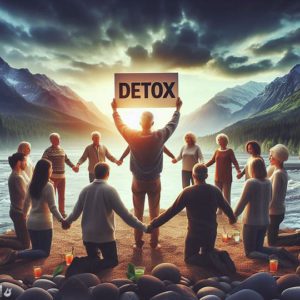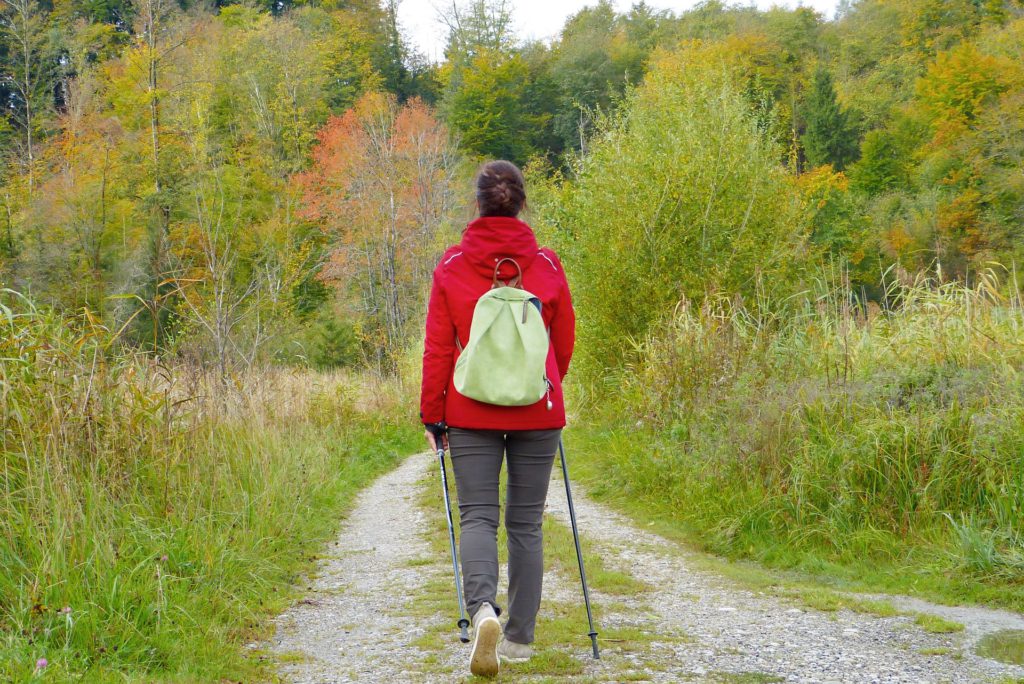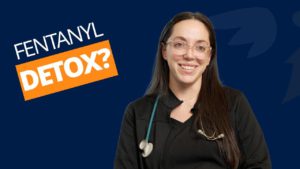
Breaking Chains with Summer House: Top Drug Addiction Treatment Center in Miami
As the shadows of drug addiction continue to grip many lives, finding the right treatment center becomes a beacon of hope. Summer House, located in
We want to make your stay here at the Summer House Detox Center as comfortable as possible. We provide a very relaxed environment where we administer the medication and supervise you as you go through withdrawal effects.
Our facility will be a home away from home where you can safely and comfortably begin the process of becoming sober. Summer House provides comfortable services and amenities during your stay.
Contact Us

Seek help today from Miami’s premiere private in-patient drug and alcohol detox center.
Summer House Detox Center will be by your side during the important but difficult step of detoxification, which includes supervised medicated treatments.
Our medical staff and therapists will guide you through the road of recovery that is tailored to your addiction. Everyone is special and will be treated with the respect and dignity you deserve as you treat your disease.
Start fighting back today!
Learn

We gather valuable information needed to determine and provide the best level of care for you.

May 12, 2020
Going through alcohol detox and alcohol rehab is difficult. It may even feel like it’s the hardest thing you will ever do. The withdrawal symptoms associated with alcohol alone are physically exhausting and dangerous, which is why seeking professional alcohol detox in a detox center is so important. In addition, learning new ways to cope with addiction and taking a long, hard look at yourself through alcohol rehab isn’t easy either.
You may think the journey is over once you begin your life in recovery, but the truth is it’s just beginning. Living in recovery means managing yourself and your actions as well as your addiction to alcohol. Your addiction will always be present in your life; it’s your job now to maintain a safe, strong recovery, free from alcohol abuse. As such, your alcohol detox in Florida, as well as your rehab program, will need to prepare you for the task of avoiding relapse in your day-to-day life so you can live safely and comfortably in recovery.
Everyone who goes through alcohol addiction treatment is different. Some people can stop drinking entirely and maintain sobriety for the rest of their lives. Some may have a harder time while others still may choose to drink small amounts and only in certain situations. For example, when they are out to dinner, they may allow themselves one glass of wine.
Still, according to the National Library of Medicine (NLM), “Permanent and life-long abstinence from alcohol is the best treatment for those who have gone through withdrawal.” This includes anyone who has been through alcohol detox at a professional facility or even at home doing so on their own. Dependence on alcohol is a powerful thing, and often, those who experience it will simply fall back into old, familiar patterns if they begin drinking again. You may be an exception, but in most cases, it’s best to abstain from alcohol entirely after completing alcohol detox and rehab.
Relapse is a return to drug or alcohol abuse when in recovery. Sometimes, someone who has been out of treatment for addiction for a short period of time will return to drinking because it’s their preferred coping mechanism, or perhaps because it’s all they know. Sometimes, a person who has avoided drinking for months or even years after recovery will relapse and begin to drink again. Relapse is always a dangerous scenario because it demonstrates a lack of control.
Though addiction treatment focuses on helping patients learn the skills they need to avoid relapse, it still occurs. Unfortunately, it’s a common occurrence in most people’s recovery journey. This is because addiction is a chronically relapsing disease, such as asthma, diabetes, or high blood pressure. According to NIDA, addiction can be managed but the likelihood of relapse should always be understood and considered.
There are ways to avoid relapse, but you should also remember that it does happen and this doesn’t mean you have failed. It simply means you need more help fighting your addiction than you’re getting. One of the most helpful ways to avoid relapse is to seek out professional treatment.
But what are some ways you can fight relapse on your own after alcohol rehab has ended?
Avoiding relapse is going to become a big part of your life in recovery. Staying healthy and avoiding the consequences of further alcohol abuse is a priority, and you should always make sure to remember that it’s necessary to a safe, secure recovery.
If you used to hang out with your friends at bars every night or you used to spend time at the homes of people who drank, you will need to reevaluate what to do with your time. Finding other hangouts is a must for avoiding relapse.
Instead of going to bars, you can spend time with friends at coffee shops, restaurants, or movie theatres. These places might still sell alcohol, but the good part is it will be much easier to avoid there than if you spend time at a bar. Remember, if your friends really love you and want you to be healthy and sober, they will be willing to break from an old routine for your benefit.
Drinking—and recovering from it—probably took up a great deal of your time in the past. As such, you’ll want to find something new to do with your time. Find a hobby that suits your temperament. Think about whether you are artistic, communicative, outdoorsy, or sporty. You may choose to learn to draw, learn a new language, take up hiking, or join a sports team based on your personality. Also, taking up a hobby means you won’t have free time that will allow you to think about drinking.
Often, people who return to alcohol abuse do so because they experience a trigger, which is something that makes them return to the substance. This can often be stress-related. Therefore, you’ll want to learn to manage your day-to-day stress through new, better coping mechanisms. Try breathing techniques, yoga, meditation, or other forms of stress management that are much healthier than alcohol abuse. You should also know which triggers might make you begin to feel stressed and/or desiring to drink. For example, if seeing a certain friend always makes you think of the nights you spent drinking together, you may want to spend some time away from them, at least until you get more stable.
When you keep a regular journal, you will start to be less surprised by the things you’re thinking and feeling because they’ll all be revealed on the page. You can also allow yourself to feel bad or upset sometimes through journaling. Getting these feelings out will go a long way toward protecting you from relapse.
A healthy mind and body will make it much easier to avoid relapse. Eating healthy, exercising regularly, and taking care of yourself are all essential to your safe recovery. In addition, those who seek regular help from a counselor also benefit, as addiction is often tied to a co-occurring mental disorder or emotional issue. Talking out your problems will start to make it easier to avoid negative coping mechanisms, like drinking.
There are many different alcohol support groups available all over the country. Alcoholics Anonymous, or AA, is the most popular. But if you are uncomfortable with its doctrines, there are other secular options, like LifeRing or SMART Recovery. These groups allow you to talk with other individuals who have been where you are now and who understand your struggle because they have experienced it for themselves. You may even decide to seek out a specific person to mentor—or sponsor—you, especially when you are new to recovery.
One of the biggest mistakes most recovering addicts make is feeling like they have to go through the process all alone. Instead, it’s important to remember that asking for help is necessary for a safe recovery. Your friends, family members, sponsors, and other people in your life want you to stay sober and to recover safely. That means they should understand if you ask to not be around people drinking when you get together or if you need to talk about your experience with addiction sometimes.
If you do find yourself in this situation, don’t panic. Try to stay calm, and make sure you ask for help. Get a friend or family member to stay with you until the worst is over. Then you will want to seriously consider seeking further professional treatment from an alcohol rehab program. You might even need to go through alcohol detox in Florida again if you have been drinking frequently and have become dependent on alcohol once more.
At Summer House Detox Center, we are happy to help you get on track for a safe, secure life after alcohol addiction, no matter what stage of recovery you are currently in. Just call 800-719-1090 to speak with a qualified addiction specialist 24 hours a day or visit our detox treatment center in Miami at 13550 Memorial Highway Miami, FL 33161.

As the shadows of drug addiction continue to grip many lives, finding the right treatment center becomes a beacon of hope. Summer House, located in

Are you looking for a safe and compassionate drug detox center in Kendale Lakes, Florida? If so, look no further than Summer House Detox Center.

Are you looking to escape addiction in Homestead, Florida? Summer House Detox Center is one of the best detox centers in the area. Located just
For immediate assistance, please call our Admissions Specialists at 800-719-1090.


Speak With A Qualified Addiction Specialist 24/7